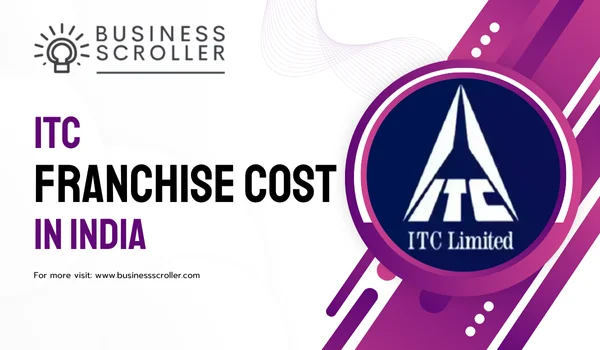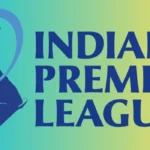ITC is one of India’s largest and most diversified corporates — its businesses include FMCG (Aashirvaad, Sunfeast, Bingo!), cigarettes, personal care, stationery, agribusiness and hospitality (ITC Hotels). When people ask about an “ITC franchise,” they usually mean one of three things: FMCG distributorship/stockist, retail/modern-trade tie-ups selling ITC brands, or hotel management / franchise/management contracts with ITC Hotels. Each route has different costs, expectations and application steps. This guide breaks down the realistic costs, the franchise/dealership models, ROI expectations, eligibility and a practical step-by-step application path. (Sources: ITC corporate pages and recent industry writeups.)
Which “ITC franchise” are we talking about? — the realistic options
- FMCG distributorship / dealership / stockist — you buy bulk ITC products and distribute to retailers; very common.
- ITC retail format / shop-in-shop / brand tie-ups — less common; typically part of modern trade agreements or co-branded retail concepts.
- ITC Hotels — management franchise /operator agreement — asset-light growth through management contracts and franchising is being scaled up by ITC Hotels. This is a corporate-level partnership and very different from an FMCG distributorship.
I’ll treat the distributorship and the hotels route separately because investment scales differ hugely.
Investment / Franchise cost — realistic ranges

- FMCG distributorship / retail franchise (typical small/medium investor)
- Estimated initial investment (retail/mini-stockist): ₹5–15 lakh — covers deposit, initial stock, small godown, first-mile distribution expenses. Several franchise portals and distributor guides report this range.
- Wholesale / larger territory stockist: ₹15–50 lakh+ depending on territory size and inventory requirements (metro vs district).
- ITC Hotels — management contract / franchise
- ITC Hotels is pursuing asset-light expansion via franchise and management contracts and aims to scale up rapidly; capital requirements here are very large (hotel development costs are driven by land + build + FF&E). Expect ₹50 lakh to multiple crores for smaller branded projects, and tens to hundreds of crores for full-service luxury hotels (depending on the arrangement and owner vs operator model). This is a corporate-level partnership, not a neighbourhood franchise.
Note: Many online “ITC franchise” listings mix and match these figures — always confirm which business model a page refers to before relying on the number.
Franchise Model & What ITC offers
- FMCG route: ITC appoints distributors/stockists based on geography, retail density and business case. Distributors purchase inventory, manage credit to retailers, and handle last-mile distribution. Support usually includes brand supply, marginal trade terms, promotional materials and marketing support.
- Hotel route: ITC Hotels signs management contracts (ITC operates the hotel on behalf of the owner) or franchise/brand licensing agreements where the developer/owner invests in property and ITC provides brand, systems, training and marketing. This is the asset-light growth strategy many hotel chains use.
Estimating ROI — What to Expect
FMCG distributorship
- Margins: Distributor margins are moderate and volume-driven. Profitability depends on trade terms, SKU mix, credit management and operational efficiency. A well-run district stockist can generate steady annual returns; payback on a ₹10–20L investment may happen in 1–3 years in high-velocity territories.
ITC Hotels / hospitality
- ROI is long-term and asset-heavy. Returns are driven by ARR (average room rate), occupancy, F&B yields and event/hospitality revenue. Management contracts shift CAPEX to the owner; ITC earns fees and brand premium. Investors should model multi-year cash flows and expect multi-year payback horizons depending on project scale.
Key drivers for ROI: location, inventory/stock turns (FMCG), pricing power, operating leverage, additional revenue lines (modern retail, hospitality banquets, F&B, loyalty monetisation).
Eligibility & Documents (Typical)
FMCG distributor / stockist
- Proof of business (GST registration), PAN, Bank statements, local trade references.
- Adequate working capital and storage facilities (godown size depends on territory).
- Sales experience or distribution network is a plus.
ITC Hotels partner
- A hotel project owner/developer with required land, capital and permissions; corporate governance and audited financials; willingness to meet ITC’s brand & operational standards.
Step-by-step: How to apply
- Decide the route — FMCG distributor or hotel partner.
- Research & choose territory or project — for FMCG, map retail density; for hotels, finalise site & feasibility.
- Contact ITC — use ITC’s corporate contact page for FMCG/distribution enquiries or ITC Hotels’ “Partner with us” form for hospitality. (Official contact channels).
- Prepare documents & business plan — financials, GST, PAN, proposed investment, proposed site plan (hotels) or godown/vehicles (distributors).
- Submit application & go through selection — discussions, site audit (if required), commercial terms, credit checks.
- Sign agreements & onboarding — training, supply chain integration, launch.
Final tips before you commit
- Clarify exactly which ITC business you’re partnering with (FMCG vs hotels). Numbers and contract terms differ completely.
- Ask for comparable P&Ls — request sample territory performance or hotel feasibility studies.
- Get legal & accounting advice before signing.
- Plan for working capital (FMCG) and regulatory approvals (hotels).

Shashi Kant is the Founder and Editor of BusinessScroller.com, a leading platform for business insights, finance trends, and industry analysis. With a passion for journalism and expertise in business reporting, he curates well-researched content on market strategies, startups, and corporate success stories. His vision is to provide valuable information that empowers entrepreneurs and professionals. Under his leadership, BusinessScroller.com has grown into a trusted source for in-depth articles, customer care guides, and financial expertise.


